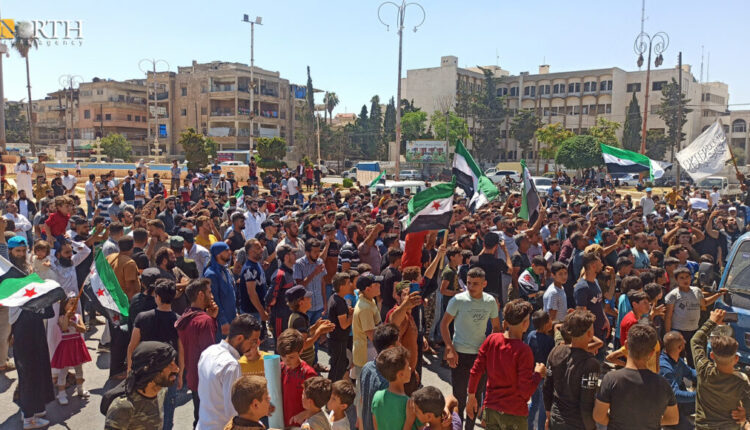Recently, much has been said about the possibility of a Syrian-Turkish rapprochement after long years of apathy and hostility.
Syria and Turkey developed their relations dramatically in 2000s. However, the Syrian crisis brought that to a halt due to the position undertaken by Turkey in supporting the Syrian opposition.
Last week, Hakan Fidan, director of Turkish Intelligence, and Ali Mamlouk, director of Syrian National Security Office, met in Moscow. The meeting, though not the very first of its kind, was expected to gain results, but it produced nothing of the like.
Turkey’s President Recep Tayyip Erdogan has recently announced plans to carry out another major military cross-border incursion into northern Syria. Erdogan specified his targets in the two northern Syrian cities of Manbij and Tel Rifaat.
Read Also: Erdogan Wants to Restore Relations with Damascus, but no Concrete Action so Far
Under this pretext, Turkey launched three military operations against northern and northeastern regions of Syria. The first was “Euphrates Shield” operation in 2016 where it occupied Jarablus, al-Bab and Azaz, the second was “Olive Branch” operation in 2018 where it occupied Afrin region, and the third was “Peace Spring” in 2019 which resulted in the occupation of the two cities of Sere Kaniye (Ras al-Ain) and Tel Abyad with their countryside.
In Tehran trilateral summit on July 19, Erdogan failed to convince both Russian President Vladimir Putin and Iran’s Ebrahim Raisi of his Syrian aspirations.
Reports suggested that Assad and Erdogan could meet on the sidelines of the Shanghai Cooperation Organization Summit (SCO) in Uzbekistan scheduled in September. However, the meeting up to date seems postponed or shelved as the Syrian President is not invited to the summit.
Syrians have always accused Turkey of sponsoring terrorist groups in Syria. This was renewed on August 23 by Minister of Foreign Affairs and Expatriates Faisal Mekdad in a press conference with his Russian counterpart Sergei Lavrov in Moscow.
Beyond statements made by the Turkish and Syrian officials, realities on the ground seem grim for both parties to come so quick to an agreement, according to the Middle East Eye.
The main priority of Turkey is the Kurdish-led Peoples’ Protection Units (YPG), while for the Syrians the Turkish-backed opposition is the priority, says the Middle East Eye.
Syria demands Turkey withdraw from all territories it occupies. Seemingly echoing this, Erdogan said recently he did not intend to occupy more Syrian lands and that Syrian were “brothers.”
One of the shaky issues that ought to be solved between the two parties is that of Syrian refugees in Turkey. By reconciliation, Erdogan wants the Syrian refugees to return home. Erdogan fears the card of refugees could backfire at the next presidential elections scheduled for next summer.
However, most refugees living in Turkey are not welcomed in Syria again. Most are seen as collaborators with terrorist groups and Turkish forces deemed occupiers of Syrian territories.
From another point of view, any Turkish withdrawal from north or northwest Syria would leave thousands of people subject to the mercy of the Syrian government forces that would usher in a mass wave of refugees into Turkey. Most Syrians living in areas under the opposition forces in Idleb and elsewhere are wanted by the Syrian authorities.
Definitely, both countries need each other; however, there are a lot of pending issues that ought to be solved one after another as the way seems a long one. Syria and the war in Ukraine are interrelated.
This article was edited by The Syrian Observer. The Syrian Observer has not verified the content of this story. Responsibility for the information and views set out in this article lies entirely with the author.


